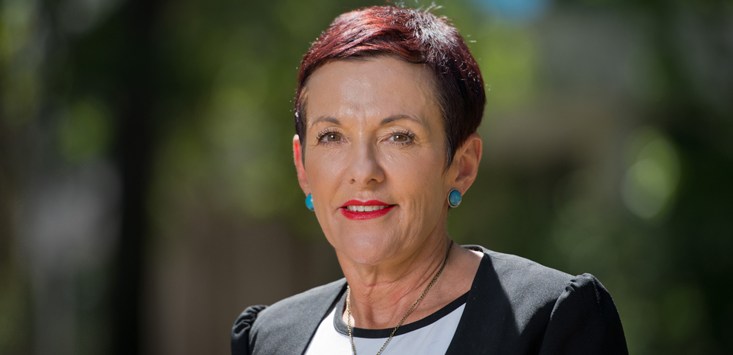
Former Australian Small Business and Family Enterprise Ombudsman Kate Carnell.
Small businesses are facing serious trouble accessing affordable insurance, with a damning report by the small business ombudsman revealing businesses that have held insurance policies for over a decade are now being refused renewal or are discovering the cost has tripled.
Releasing the report today, the Australian Small Business and Family Enterprise Ombudsman Kate Carnell says the inquiry shows the country is “in the grip of a national crisis that is killing small businesses”.
“The local insurance market has been hardening for years as insurers adapt their risk weightings to increasing threats,” Carnell says.
“As a result, far too many Australian small businesses are on the brink of collapse because they cannot secure a range of insurance products necessary for their operation,” she says.
Carnell launched the investigation in July this year after a large number of small businesses contacted her office saying that they could not get the insurance products they needed to run their businesses.
“Or alternatively, they said that the prices of insurance products had doubled or even tripled so were unavailable or not cost effective for them,” Carnell tells SmartCompany.
Businesses most affected by natural disasters such as bushfires, floods and droughts, particularly in northern Queensland, are having the greatest difficulty finding insurance.
Carnell says operators that need specific insurance products for expensive equipment are also struggling to find insurance.
“We found that areas like caravan parks were really struggling to get affordable insurance right across Australia,” Carnell says.
“Adventure tourism businesses were struggling to get cover at anything like a reasonable price,” she says.
In the inquiry, Carnell came across one business whose insurance went from about $5,000 to $20,000. She says those sorts of figures were not unusual.
To fix these problems, Carnell has put forward 15 recommendations, including the expansion of the Australian Reinsurance Pool Corporation so that it provides reinsurance for all natural disasters, particularly on commercial property.
The government-owned Australian Reinsurance Pool Corporation was set up after September 11 to provide reinsurance to terrorism-based claims, and according to Carnell, it could easily be expanded to also cover natural disasters.
“This would ensure that businesses in north Queensland could get affordable insurance generally,” she says.
Carnell would also like to see the establishment of a cap on liability for personal injury claims and a national insurance scheme for people with severe injuries.
In Australia, there is no limit on how much courts can order insurance companies to pay out on personal injury claims.
“We think that Australia should look at the New Zealand model that has applied statutory caps on liability for personal injury and also a no-fault national injury insurance scheme,” she says.
“What that fundamentally does is provide life-time cover for catastrophic injuries. We think both of those things are important,” she says.


COMMENTS
SmartCompany is committed to hosting lively discussions. Help us keep the conversation useful, interesting and welcoming. We aim to publish comments quickly in the interest of promoting robust conversation, but we’re a small team and we deploy filters to protect against legal risk. Occasionally your comment may be held up while it is being reviewed, but we’re working as fast as we can to keep the conversation rolling.
The SmartCompany comment section is members-only content. Please subscribe to leave a comment.
The SmartCompany comment section is members-only content. Please login to leave a comment.